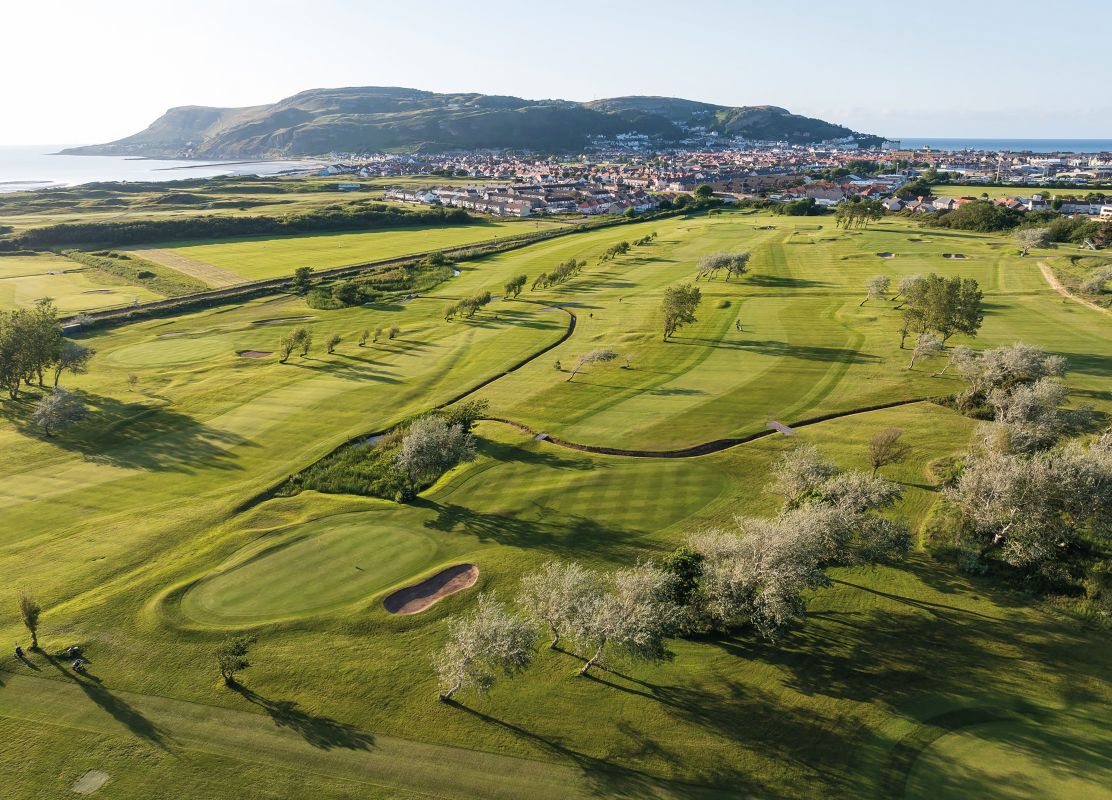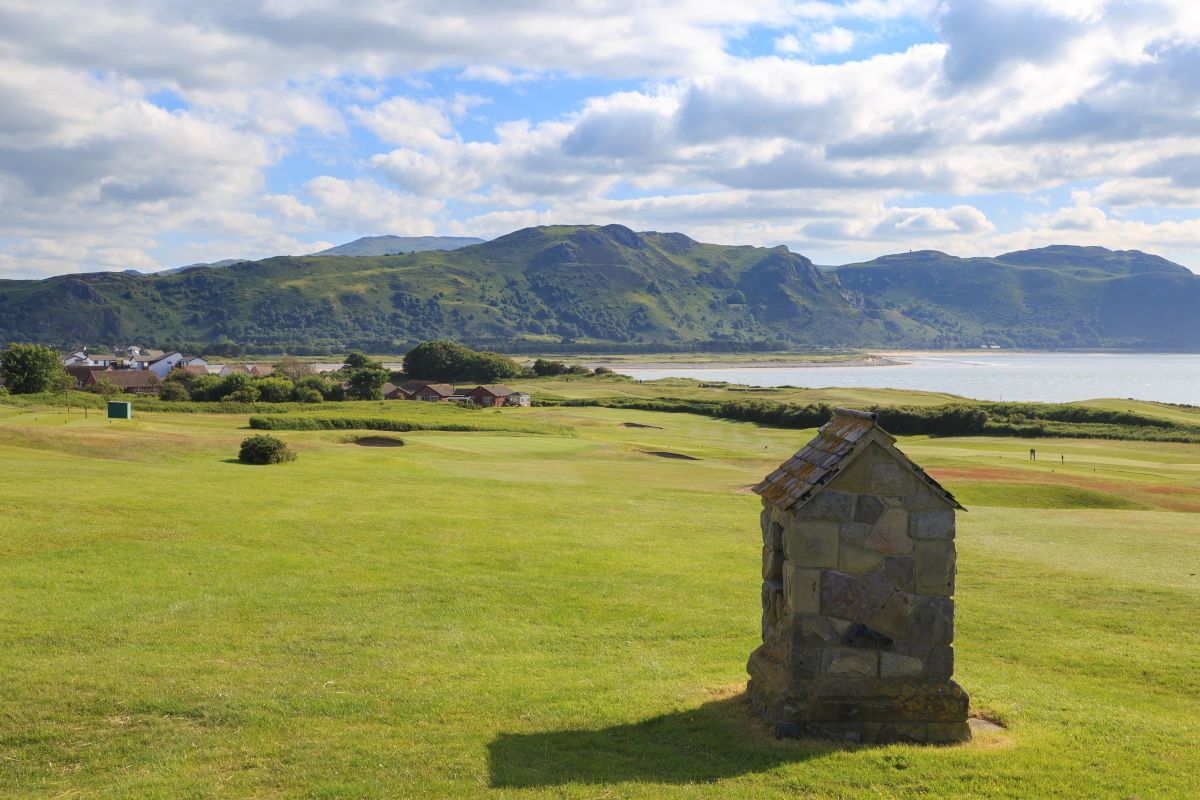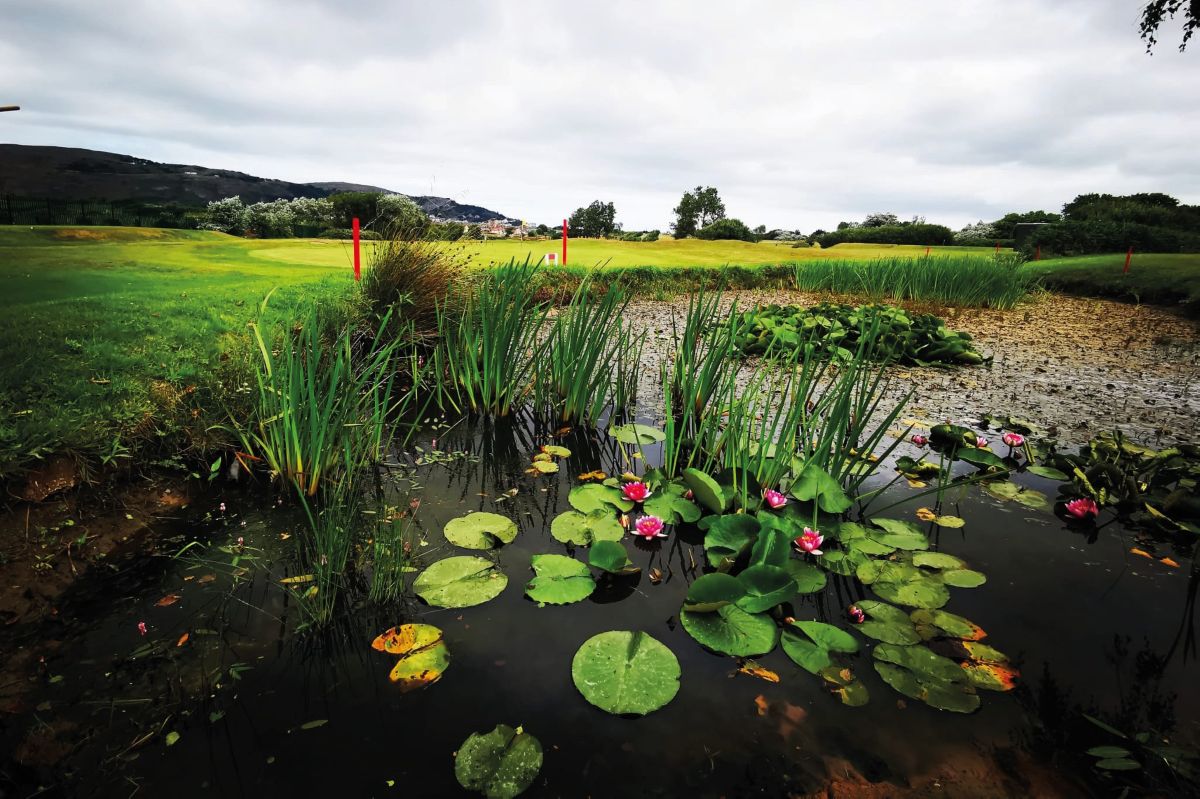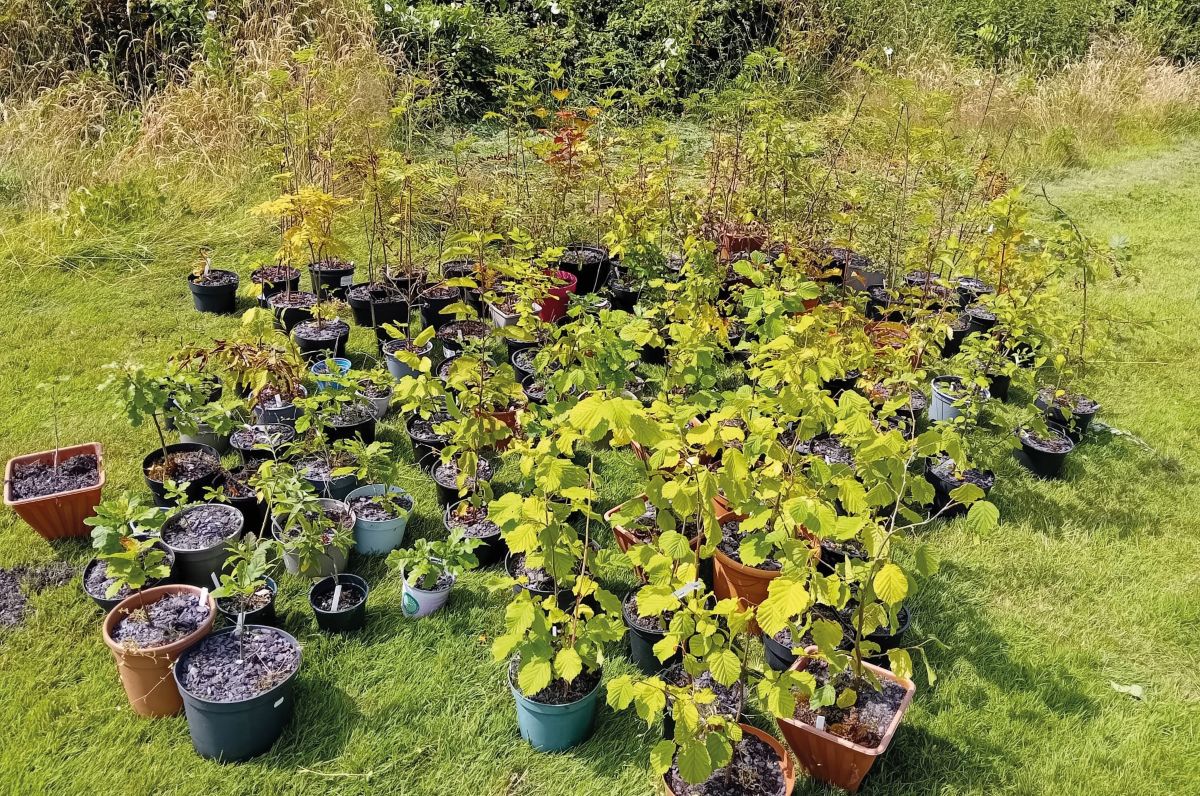- Homepage
- News and Features
- Sustainability: Llandudno Leads the Way
Sustainability: Llandudno Leads the Way
Daniel Evans and his team are doing work that his idol David Attenborough would be proud of.

At the start of 2025, Llandudno Golf Club Maesdu became the first club in North Wales to gain GEO Certification, following that achievement with the Sustainability Project of the Year at the Wales Golf Awards.
The double success is fitting recognition of the tremendous work being done by Head Greenkeeper Daniel Evans, who has been at the club 16 years and heads a six-strong team at the picturesque coastal course, which provides a scenic blend of parkland and links-style golf. The club’s bid for recognition from the GEO Foundation for Sustainable Golf was spearheaded by Daniel’s team alongside club member Ian Peters and a dedicated group of volunteers.
Working alongside the North Wales Wildlife Trust (NWWT), there has been a concerted effort to bolster biodiversity across the 46 hectares the course covers. Of those, 7.5 hectares remains naturalised, consisting of woodland, bracken and gorse, while six ponds occupy 0.5 hectares. The NNWT produced a Habitat Management Advice report for the club and its recommendations have been acted upon, including mapping out the various vegetation types found on the site. A walkaround survey conducted last year recorded 131 different flora and fauna.
The club also participated in a woodland trust scheme in 2023, nurturing several native tree saplings in its nursery to be planted in suitable areas. Eco-rough is being encouraged by transitioning some areas away from being managed turfgrass, while the GEO Foundation report praised the fact that some bunker edges are left as natural and some are being converted to grass to support wildlife further.

They are all measures that appeal to Daniel’s sense of responsibility as a steward of the land.
“Wildlife has always been a passion of mine – I’m a big fan of David Attenborough,” he said. “I like the way golf courses can be used for the greater good of the environment, beyond just being somewhere to play golf. That approach has become more common over the past 5-10 years, and it’s informed a lot of the work we’ve been doing, which started with looking at how we could enhance rough and out-of-play areas around the course. We thinned them out and planted wildflowers and enjoyed huge success with that, with lots of positive feedback from members, and we’ve gone on from there.”
The installation of bird boxes, bat boxes, bug houses and nesting areas on ponds has given rise to a substantial increase in winged visitors and other creatures of all shapes and sizes, while the help of one club member has yielded some tangible – and delectable – results. “We have a member who is a beekeeper, so we have beehives on the course,” Daniel explained. “That’s been a great success and we sell the honey in the clubhouse.”

When it comes to managing the playing surfaces, the team uses organic fertilisers and biostimulants to sustain optimal nutrient levels in the soil, with daily inspections taking place to identify any pest, disease or weed issues. “It’s about managing the surfaces more organically,” said Daniel. “A lot of chemicals are being taken off the shelf and that’s something I agree with, given my passion for wildlife. It does change the way you have to manage the course but it’s about using your knowledge and implementing your cultivar methods to keep the plant healthy and maintain quality surfaces.”
The greens, tees, fairways and maintained rough areas benefit from a variety of cool-season turfgrass species, with a mix of fescues, browntop bent, annual meadow grass and ryegrass ensuring excellent playing surfaces while also being best suited to the climate and soil conditions.
A transition from annual meadow grass to finer grass species on the greens is part of the plan to better withstand the changing climate, with top-seeding taking place throughout the growing season, alongside regular testing and monitoring. Daniel underlined the need to maintain open lines of communication with members to ensure they understand his team’s approach to managing the course. “It’s part of my job to educate the members by letting them know what we’re doing and why we’re doing it,” he said. “We can’t just cut greens down to 3mm and put loads of water on because that would go against our eco-friendly approach.”
In fact, responsible water management is another area in which the club has excelled. In 2023, Maesdu secured a £24,000 grant from Sport Wales to fund a project aimed at reducing its mains water consumption, installing a 2,000-litre bowser filled via the ponds, and drilling a borehole that provides 20,000 litres a day.

The cost savings and drastically improved efficiency in water usage are results of which Daniel is hugely proud, even if the early omens did not bode well. “It was a case of third time lucky with the borehole,” he explained. “Dragon Drilling drilled their first hole 120 meters down and just didn’t find anything. They were surprised, and we were surprised ourselves.
“Second time, probably about 20 meters away, we tried again a good 100 metres down, and still nothing. I was very passionate about this and we had a meeting where I pushed for us to try another drill, and third time lucky – having moved the location about 100 metres away and drilled to around 140 metres – we struck gold. We’re saving a huge amount on our water bill compared to five years ago, when we were fully reliant on mains water.”
As well as continuing to identify rough areas for targeted management, an ongoing review of the bunkers is high on the agenda for Daniel and his team.
“We filled in quite a few, but we’re reviewing the rest as there are some that just aren’t getting used,” he said. “It’s labour intensive to maintain them and the cost and availability of sand is also a factor. We’ll go round every bunker and identify the ones we don’t need and either convert them to grass or include some other feature without changing the playing characteristics of the course too much.”

It is another step in an ongoing journey that Daniel hopes will create an enduring legacy at Maesdu, with the awards and accolades that have recently come the club’s way a reminder that there is recognition for a job well done.
“It is nice to get awards and recognition, and to get positive feedback from members,” he said. “It means the world when you work hard, produce results and people recognise you for it. As a team we’re proud of the work we’re doing, and I know it makes the members proud to be part of Maesdu.” GI
GEO Certified Report highlights
- Long grass areas are maintained as small perennial meadows by adding a diverse mix of seeds to enhance plant diversity.
- A strong tree management programme involves planting various tree species, creating unmown woodland copses, and thinning wooded areas to support wildlife and boost biodiversity.
- Bracken areas are enhanced by increasing habitat diversity through scattered tree planting and grassland integration, strengthening the ecosystem and supporting wildlife.
- Ponds are managed to ensure a range of microhabitats, from open water to established emergent plants.
- Considerations in the planting of hedgerows in some areas.
- The installation of several bird boxes.

Author

BIGGA
Dino Minoli (GEO accredited independent verifier) on Llandudno:
"Llandudno Golf Club Maesdu is passionately advancing its sustainability efforts by protecting habitats for biodiversity, progressing sustainable turfgrass management, and reducing resource and material demands. With a commitment to responsible sourcing and fostering mental health and well-being in the community, their inspiring initiatives include beehives, a portable water bowser for irrigation, bird boxes, bug hotels, wildflower areas, tree nursery and solar panels. Furthermore, LGC has generously donated land for a community cycle track and provides vital support to charities like Blind Veterans UK and Ty Gobiath, which delivers hospice care for children with cancer. LGC’s initiatives reflect a strong and commendable commitment to sustainability and community support, promoting a healthier environment for all.”
